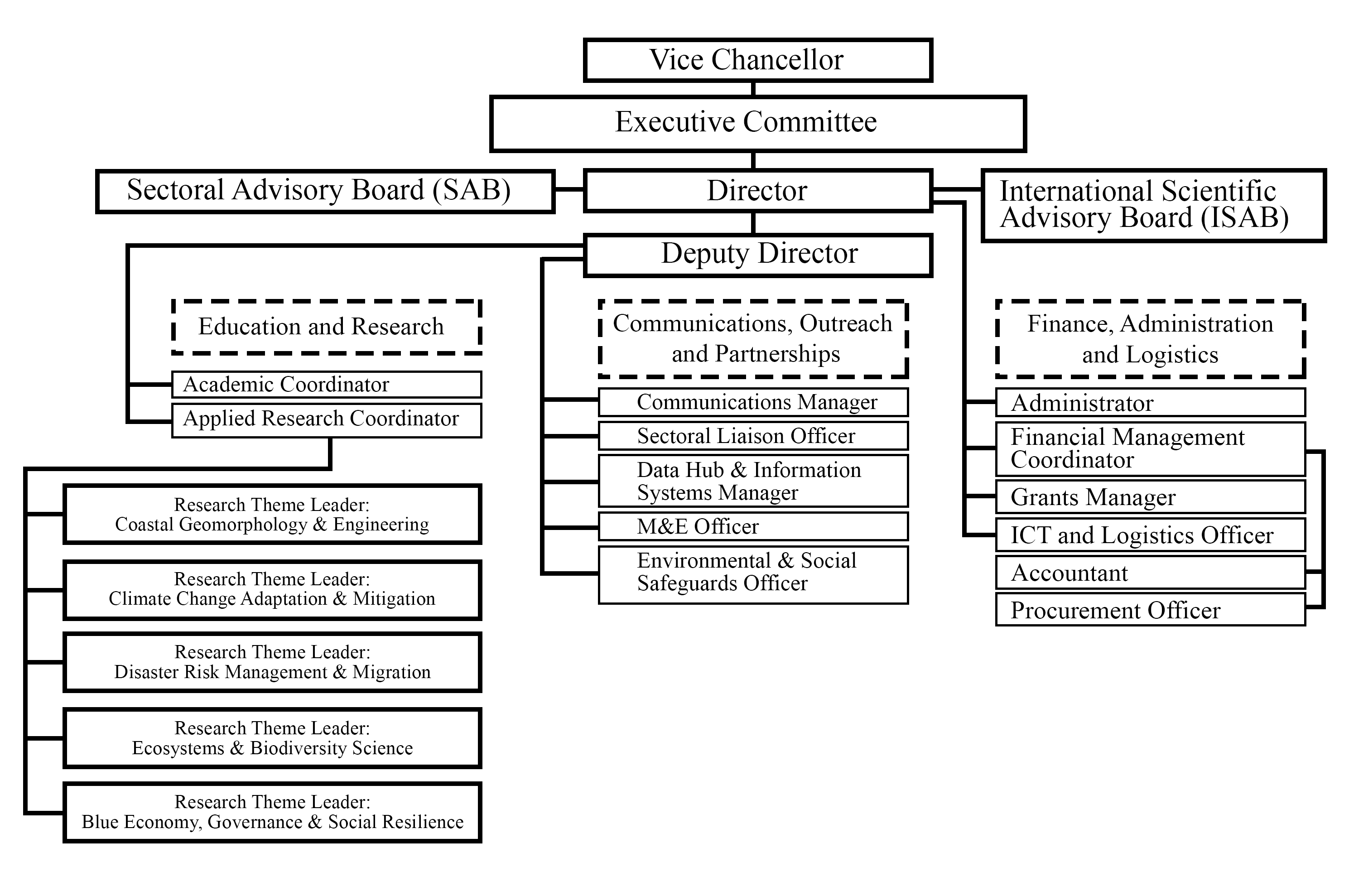 University of Cape Coast
University of Cape CoastThe University of Cape Coast (UCC), in partnering with the World Bank under the new Africa Centre of Excellence (ACE III) Impact Project, will promote coastal resilience within the West and Central African sub-regions. The objective of ACECoR is to support the development of technical and scientific capacity of young African professionals to develop integrated solutions to address coastal degradation in the countries of intervention through short– to long-term professional and academic training programmes.
Focus will be on regional participation and the inclusion of female, all geared towards the advancement of sustainable use and management of marine and coastal assets in the partner countries to be involved. This is expected to be achieved through collaboration with academia, research institutions and industry, locally as well as international partnerships.
ACECoR will carry out education, research and outreach programmes. These programmes will be implemented in collaboration with other academic institutions and industries within the country, sub-region and at the global level to ensure a multi- and interdisciplinary approach to addressing coastal degradation across the sub-region.

ACECoR will train 120 graduates at the postgraduate (PhD and Masters) levels in addition to 260 professionals (in short courses) across Africa in the areas already described. In addition to existing programmes of Disaster Risk Management and Migration, Fisheries Science, Oceanography and Limnology and Integrated Coastal Zone Management, new programmes in Physical Oceanography, Coastal and Marine Engineering, Forestry Engineering and Marine Meteorology will be developed and mount for the training of postgraduate students.
The Centre aims at achieving excellence in training both students and professionals in selected areas as a way of enhancing coastal resilience and promoting policies through:
Enhancing old academic programmes and developing new programmes to train professionals in the coastal issues
Improve teaching and learning environment and resources for training and research
Enhance human resource capacity for teaching and research in the thematic areas of the project
Establish strategic academic and industry sector partnerships for outreach through students/faculty exchange, networking, conferences and workshops
Expected results of ACECoR’s activities will include:
Enhanced capacity of staff the University to deliver high-quality training to increase the number of postgraduate students and supply of highly skilled graduates (30 PhDs, 90 masters, 260 short courses participants)
Enhanced research capacity to publish hundred (100) scientific articles in both international and local journals and communicate applied research at regional and international conferences and workshops during the project period.
Strong collaboration with academic partners established for joint research and training,
Partnership between UCC and sector industry established to enhance faculty and student internships, training of practitioners and research into industry problems to influence national and regional policies,
Outcome 1: Highly skilled postgraduate (PhD and MPhil) students, post-doctoral fellows and professionals trained
Outcome 2: Applied research on cross cutting issues on marine and coastal degradation conducted
Outcome 3: Access to data or information for management of coastal degradation enhanced
Outcome 4: Effective integrated coastal zone management policies developed
Outcome 5: Marine and coastal resources are managed in a sustainable manner